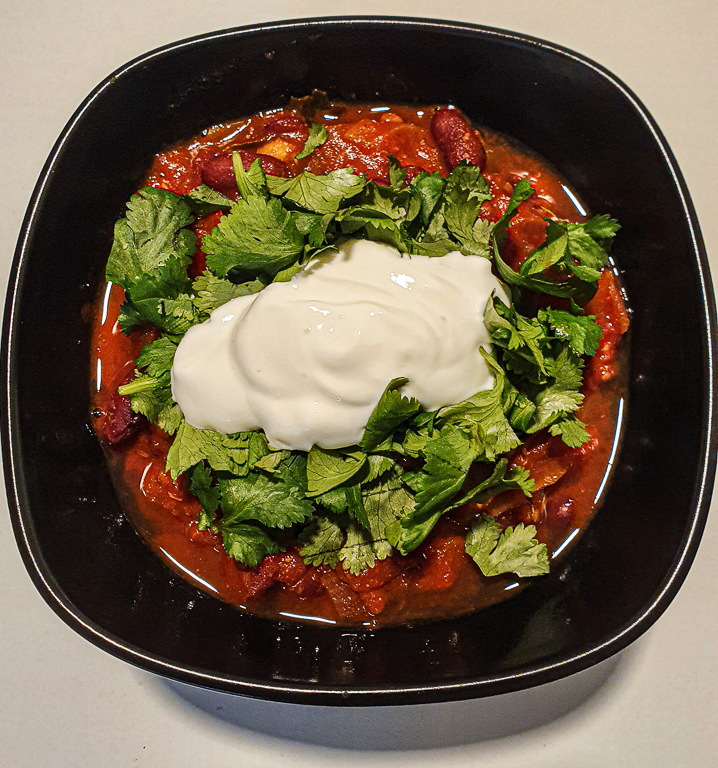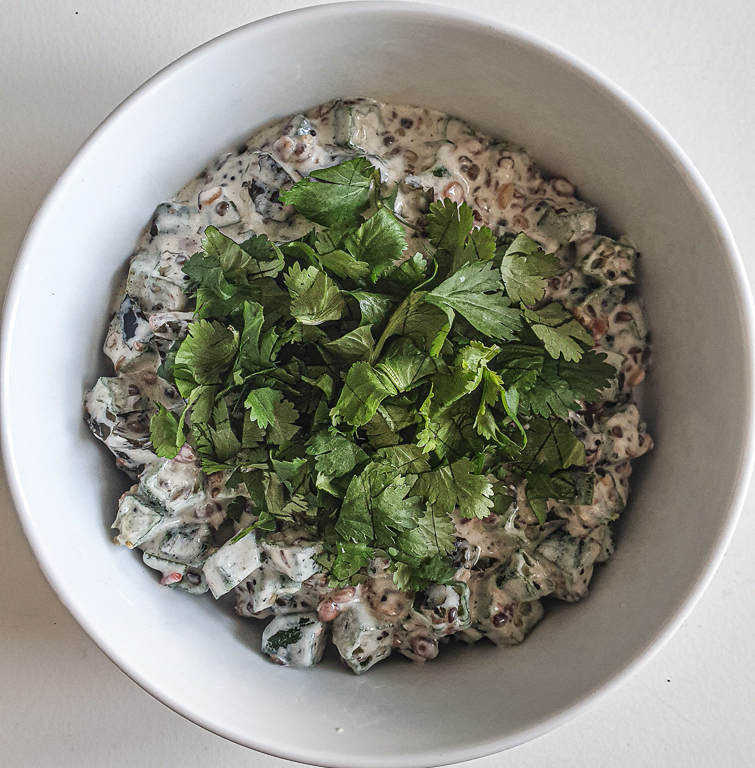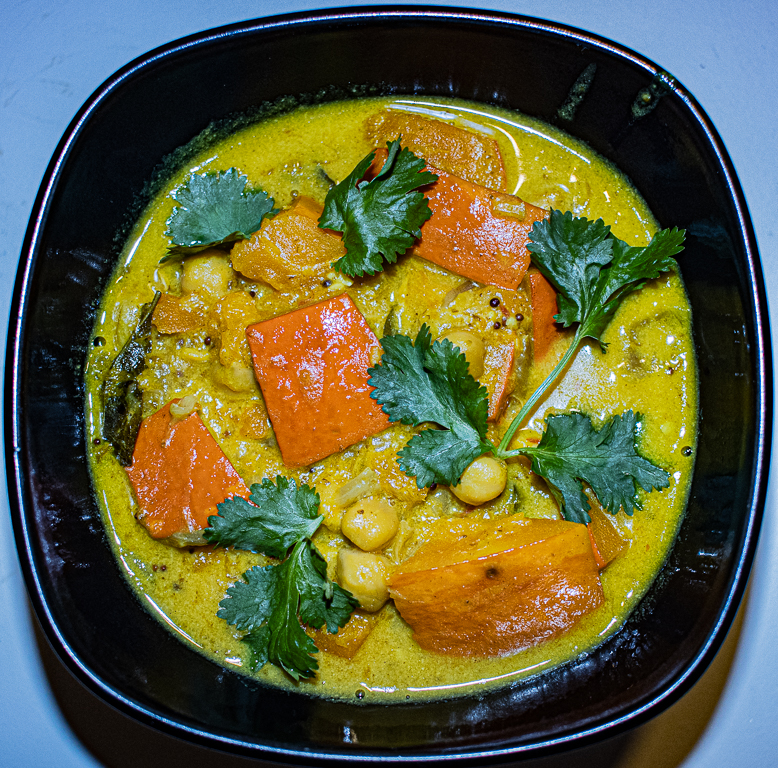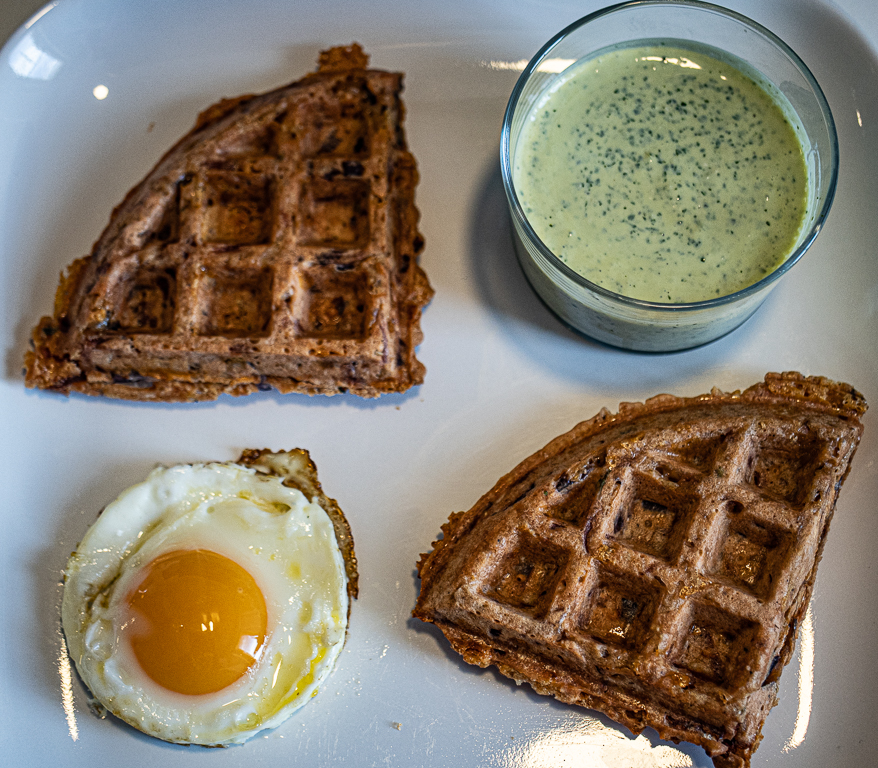NOTE: The gnudi need to rest at least four hours, preferably longer, such as overnight or from morning till evening.
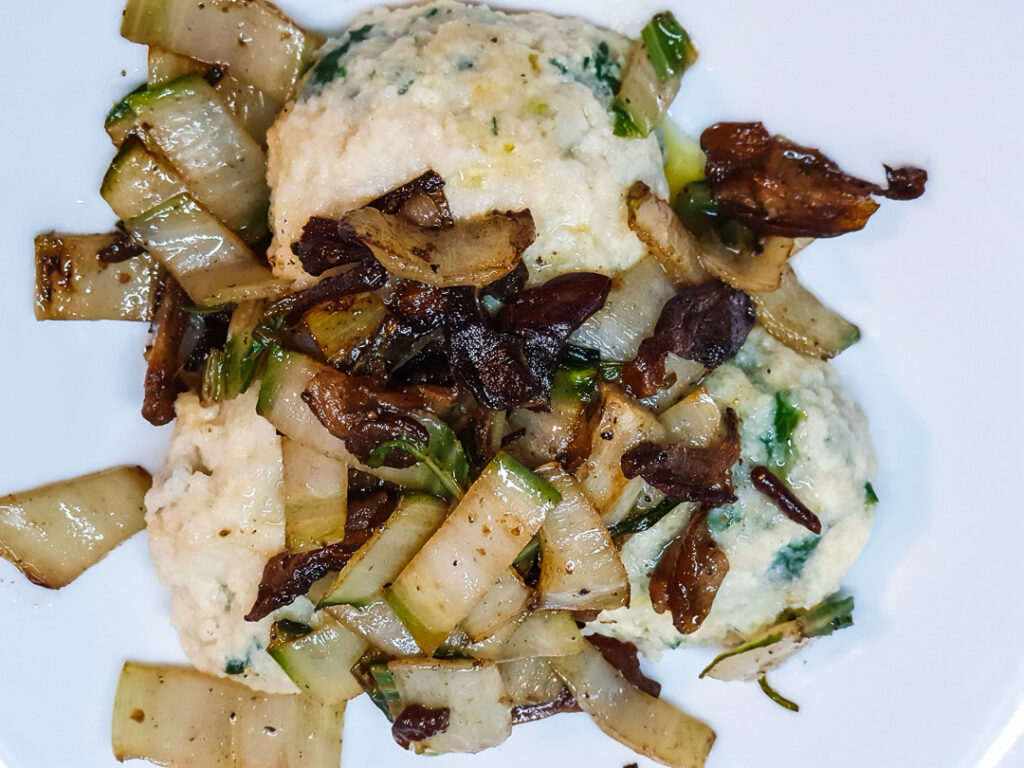
- 500 g chard
- 250 g ricotta
- 2 whole eggs
- 10 g parmesan, finely grated, plus extra to garnish
- 20 g pecorino, finely grated
- 1 pinch freshly grated nutmeg
- salt
- freshly ground black pepper
- 3 tblsp flour
- 200 g semolina
- 100 g girolles
- 1 tblsp of olive oil
- 100 g unsalted butter
- lemon juice to taste
OPTIONAL: It would not be among my favourites if I did not, instead of the nutmeg, add a tsp garam masala to the ricotta mixture. Also, by mistake I had only bought 200 g ricotta, so I make up for the volume with additional grated parmesan and pecorino. And finally, I added a bit of my favourite chili paste to the sauce.
Bring a large pot of salted water to the boil.
Strip the chard leaves from the stalks and wash thoroughly. Wilt the chard leaves in boiling water for 1-2 minutes then refresh in cold water. Trim the ends of the stalks and cook separately but in the same water for 2-3 minutes retaining a slight bite, then refresh in cold water.
Strain the leaves and give them a really good squeeze to remove all the water from them. Finely chop the leaves and cut the stalks into 5cm batons. Keep the stalks covered and refridgerated while the gnudi rest.
Beat the ricotta until smooth, coarsely chop the chard leaves and fold into the ricotta mixture. Add the beaten eggs, parmesan, pecorino, nutmeg, a pinch of salt and pepper then fold in the flour. Shape into 30g balls and place on a tray dusted with the semolina.
Roll the balls around in the semolina ensuring each ball is evenly coated. Cover and leave in the fridge for at least four hours, preferably overnight or from morning till evening, before cooking.
Clean the girolles thoroughly with a dry brush.
Bring another pan of salted water to the boil, drop in the gnudi and simmer gently until they float to the surface. This should take 3-4 minutes.
While the gnudi cook, heat up the olive oil in a wide pan. Fry the girolles and chard stalks for a few minutes over a high heat until nicely coloured. You want roughly an equal amount of girolles and stalks, so you may not need to use all the chard stalks
Turn down the heat, add the butter and a splash of the gnudi cooking water. Stir until the butter has emulsified and begins to thicken, then add a dash of lemon juice and a crack of black pepper.
Carefully remove the gnudi from the water using a slotted spoon, drain well and add to the sauce. Gently swirl the pan to combine everything and allow the sauce to thicken, coating the gnudi nicely. Add a splash more of the cooking water if it becomes too thick, or an extra knob of butter if a bit thin. Serve and finish with freshly grated Parmesan.

